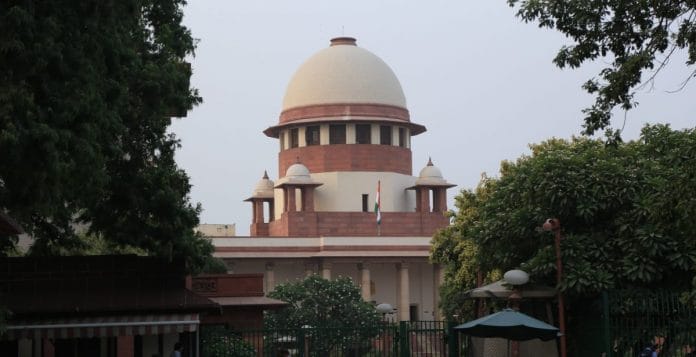Legal experts say the concept of house arrest doesn’t exist as per law, but constitutional courts have passed such orders.
New Delhi: The Supreme Court’s order to direct the Pune police on 29 August to place five activists under house arrest in the Bhima-Koregaon case is now being questioned by legal experts.
The court’s intervention came after the Pune police arrested Varavara Rao, Arun Ferreira, Vernon Gonsalves, Sudha Bhardwaj and Gautam Navlakha on 28 August in the case related to the 1 January violence in Maharashtra. Five other activists related to the same case were arrested in June.
As per the law, the criminal laws in India have no provision to place a person under house arrest. According to the Code of Criminal Procedure, only two kinds of custody are possible — police custody or judicial remand.
When a person is arrested, the police is required by law to produce the person before a magistrate within 24 hours. The magistrate will then decide whether to place the person under police custody — if further investigation is required — or under judicial remand — usually in a jail until trial is completed.
In both cases, the person in custody can seek bail, as per the law.
Also read: Supreme Court stays arrest of 5 activists, says ‘dissent safety valve of any democracy’
On Thursday, the court reserved its verdict that will determine if police can arrest the five activists and continue the probe or handover the investigation to a special investigation team.
Legal experts, however, say the court’s August order is an arrangement that does not have any legal basis.
“The court is setting a dangerous precedent. There is no such thing as house arrest,” said B.B. Pande, a retired criminal law professor at Delhi University.
“When someone comes to court seeking protection of their liberty, how can the court take the middle ground? Either the court must have stayed their arrest and released them or dismissed the case and asked them to go to the trial court,” added Pande.
Legal basis
House arrest refers to confining a person’s movements within his house or any other place of choice. Apart from restricting communication, the person is also under constant police surveillance.
Constitutional courts in India have directed police to hold persons under house arrests. This makeshift arrangement, however, does not allow the person to seek bail since the ‘arrest’ is directed by a constitutional court.
The apex court’s August order is based on Article 142 of the Indian Constitution which grants the court power to pass any orders “necessary for doing complete justice in any cause or matter pending before it”.
While the orders must not be contrary to existing laws, nothing prevents the court from passing orders on issues where there are no laws.
However, the apex court did not justify its decision in the Bhima-Koregaon case. The court usually doesn’t provide reasons for its interim orders.
Also read: Bhima-Koregaon arrests: Letter ‘seized’ from activists talks of ‘Congress support’ for protests
On 29 August, the Delhi High Court was set to release Navlakha, one of the five arrested activists, before the apex court passed the house arrest order. Navalakha had earlier separately moved the high court challenging his arrest by the Pune police.
“The Delhi HC wanted to release Navalakha but the apex court’s orders came in the way. In fact, the HC’s methods were right, hear the case and decide right away. What the top court has done is further violate the person’s liberty,” said a senior advocate, unrelated to the Bhima-Koregaon case, on condition of anonymity.







Fully agree. The lower courts may take it as a precedent and may use the measure to the disadvantage of the liberty of accused citizens.
On a similar note, I have doubt if the jailing of Subarat Roy, the Sahara Chief, was in sync with the rule of law foundations. With all the respect to the learned judges, did they not become the prosecutor, jury and judge -all in one there? Subrat’s properties can be disposed by a ‘due process’ to pay to the litigants. And a team could have been constituted to fast track it. But putting him in jail till he does that, I believe it is a bit too far.